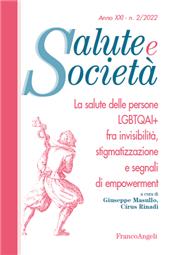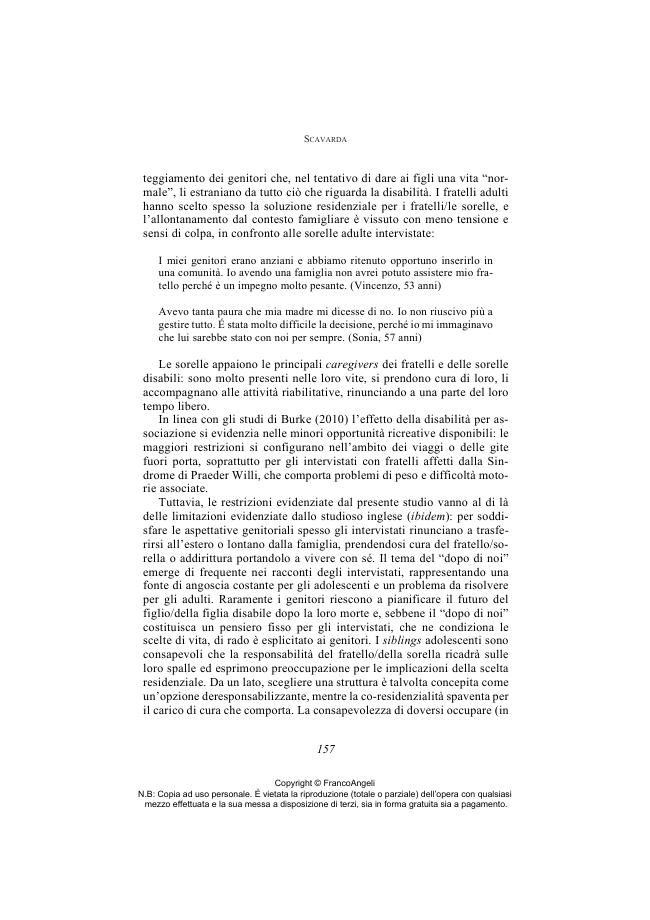Mio fratello non è figlio unico : l'esperienza della disabilità per associazione dei fratelli di adolescenti e adulti con disabilità intellettiva
149-164 p.
The paper analyses the impact of disability on the social identities of siblings of young people and adults with intellectual disability. The main aim is to explore the positive and negative consequences of the everyday management of disability for siblings, so as to empirically bolster the concept of "disability by association". The latter refers to the attribution to siblings of an associative identity due to the presence of a disabled member within the family. During social interactions, the associative identity may result in positive as well as negative stigmatising effects. Evidence is drawn from a qualitative study, made up of 32 indepth interviews and two focus groups with siblings of young people and adults with intellectual disability. Results confirmed the presence of consequences of the interactive effects that impinge on the lives and behaviour of interviewees.
However, these consequences go far beyond the stigmatisation process, entailing a sort of identity merge, which limits siblings' life and work opportunities. The care burden, especially when parents will be dead, appear to affect the social identities and the experiences of siblings, especially of sisters, more than the internalisation of devalued images of intellectual disability. [Publisher's text].
Forma parte de
Salute e società : XXI, 2, 2022-
Artículos del mismo número (disponibles individualmente)
-
Información
Código DOI: 10.3280/SES2022-002011
ISSN: 1972-4845
KEYWORDS
- disabilità, disabilità intellettiva, fratelli, stigma di riflesso, disabilità per associazione, Disability Studies
- disability, intellectual disability, siblings, courtesy stigma, disability by association, Disability Studies



